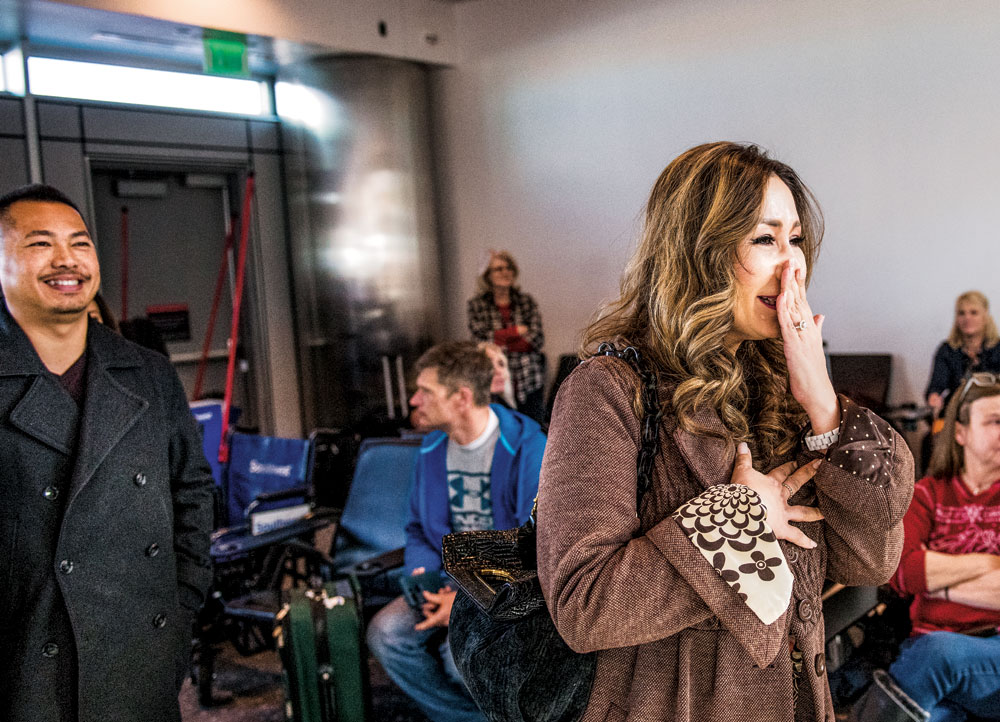
Vannessa Pham arrives at the Denver airport in January 2019 to meet her sister Berni Slowey. Reconnected by DNA testing, they hadn’t seen each other since they were 2 and 4 years old in Vietnam. —Photo courtesy of Willy Wilson, Life Unstill Photography.
In 1975, just before the fall of Saigon, many South Vietnamese families were preparing to evacuate before the North Vietnamese marched into the city. “Mothers with Amerasian children were getting out because they had heard they might be tortured,” says Berni Slowey, the daughter of a South Vietnamese woman and an American soldier, who was 4 years old at the time. “We kids were playing in the courtyard of our apartment complex, when suddenly my 2-year-old sister Rose wasn’t there. My aunt, who was watching us, was frantic. Somehow Rose had gotten out through the gate and into the street.”
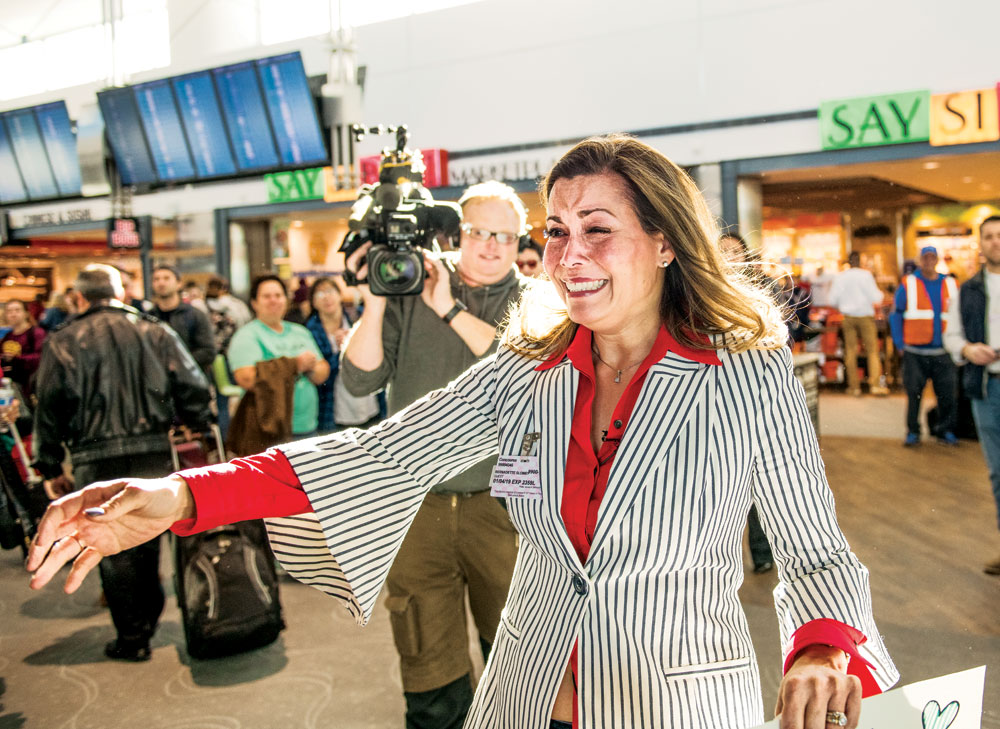
Berni Slowey sees her sister, Vannessa Pham, for the first time in 44 years. —Photo courtesy of Willy Wilson, Life Unstill Photography.
Rose was still missing when Slowey and her mom boarded an airplane for the U.S. to meet her father. “Mom had a terrible decision to make: keep looking for her missing child, or evacuate with the daughter she still had? As a mother, I can’t imagine having to make that choice,” said Slowey, a Stapleton resident and the mother of two boys. “We thought we’d never see Rose again, that she was lost forever.”
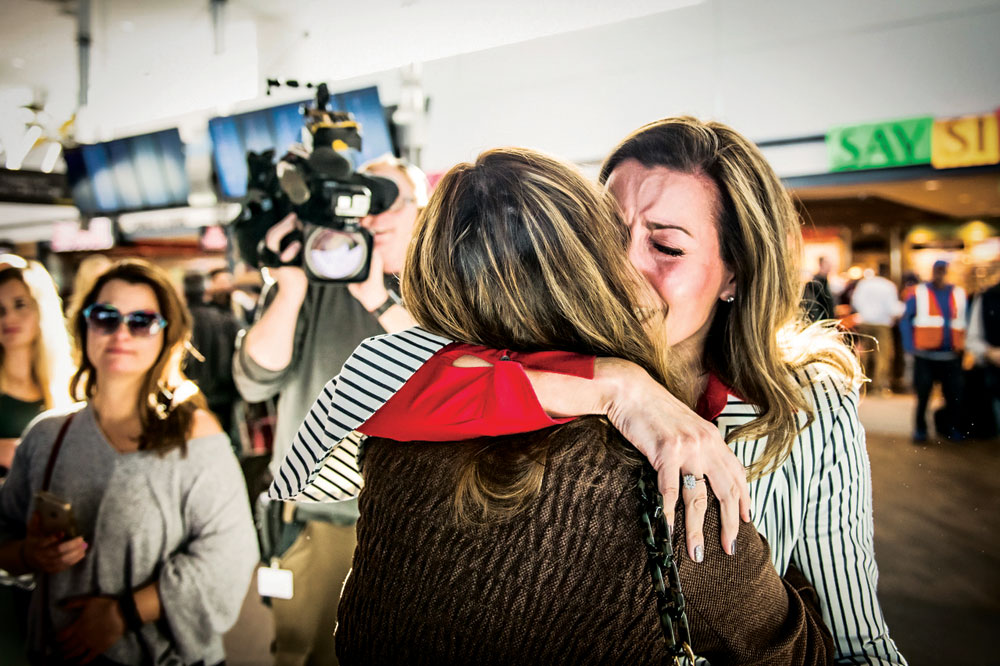
Vannessa Pham and Berni Slowey’s emotional reunion. —Photo courtesy of Willy Wilson, Life Unstill Photography.
Fast-forward to January 2019, when Slowey and her sister Rose met at Denver International Airport. It was the first time they’d seen each other in 44 years. “I had been waiting for her since 1975; it was a weight on me. But now the healing can begin,” Slowey said.
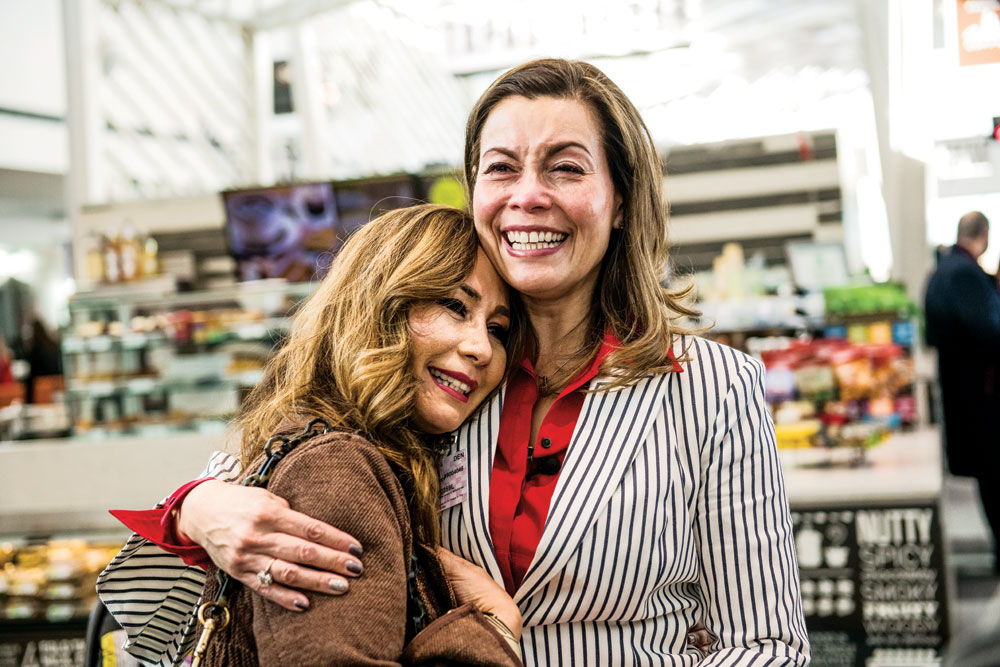
Pham found her family, including Slowey and three other siblings, through DNA testing after learning in May of 2018 that she was adopted. —Photo courtesy of Willy Wilson, Life Unstill Photography.
Rose had been adopted by a Vietnamese woman and her name had been changed to Vannessa. She emigrated to the U.S. with her adopted family when she was 11, and she lives in California. Now Vannessa Pham wants to be called Nessa Rose, a nod to her origins. “I never thought I’d find my biological family,” she said. “Now I feel like I’m home.”
DNA Test Connected the Siblings
Pham found her family, including Slowey and three other siblings, through DNA testing after learning in May of 2018 that she was adopted.
Pham sent her DNA to the Family Tree database and there was a match: a cousin emailed her in mid-December 2018 saying she also had a brother and three sisters. Within 12 hours of learning this news from their cousin, Slowey and Pham spoke for the first time in 44 years. Cross-referencing the data between different ancestry websites, it would take 48 hours to confirm that Slowey and Pham were full siblings. But the two already knew they had found their long lost sister. “It was like a dream,” said Pham.
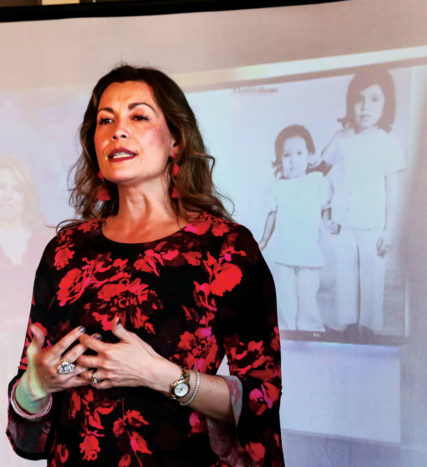
Berni Slowey, shown in front of a photo of herself and her little sister Vannessa in Vietnam, speaks at a fundraiser to cover film production costs for a documentary about their story.
“Twelve hours later we emailed, texted and talked,” said Slowey.
The family reunion was tinged with sadness when Pham learned that their mother had passed away in 2012. “Her death feels like a thousand weights on my heart,” Pham said.
Their father, who lives in Texas with his second family, is still processing the news that his long-lost daughter has been found. “I think he’s reeling in a lot of guilt, like ‘What if she asks me why I didn’t look for her?’” Slowey said. “He was only 20 or 21 during the war and he had his own story. The DNA testing brings increased vulnerability because our stories can’t be hidden anymore.”
Pham and her father have exchanged Facebook messages but have not met yet. “The news came as an overwhelming shock for him,” Pham said. “He said he’s adjusting, and he asked me to be patient. ‘We’ll have our time,’ he said. I said I’m here and I gave him my phone number.”
Piecing Together the Story
Now the sisters are piecing together the story of Pham’s disappearance in 1975. “Everyone has their own version of what happened based on their personal perspective,” Slowey said. “My mother had thought Rose was abducted because kids were being kidnapped during that time.” Slowey says their story continues to evolve as they uncover various versions of what family members recall from that time.
Pham’s investigations indicate that she was found wandering the streets and taken to the police station, where her future adopted mother worked. “I slept in a jail cell at night and played outside with her kids during the day. After about 10 days, a policeman put me on his motorcycle, bound for the Operation Babylift airplane to the U.S. But the motorcycle broke down, so we didn’t make it. The plane took off and exploded over the airfield, killing everyone aboard. So, the officer asked his co-worker if she could take me, and she adopted me.”
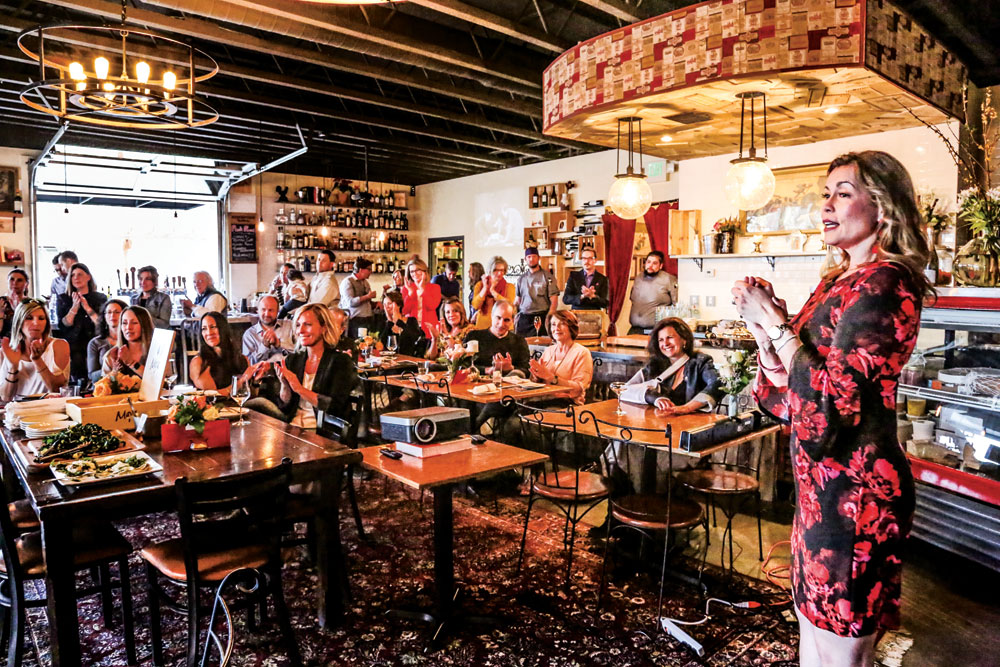
Slowey speaks at a fundraiser at Della Radice restaurant in April.
Making a Documentary Film
Slowey, who produced the documentary film, Berni’s Journey (reviewed by Indie Prof in the March 2015 Front Porch) left for Vietnam on May 28 with Pham to work on the documentary of their story. In the film, Finding Rose, Slowey says, “We plan to tell the variations and allow the viewer to come to their own conclusion. I love this part of the story-telling process. It’s called the Rashomon Effect.”
The Rashomon effect occurs when an event is given contradictory interpretations by the individuals involved. The effect is named after Akira Kurosawa’s 1950 film Rashomon, in which a murder is described in four contradictory ways by four witnesses. —Wikipedia
“We have a half-brother, Thien, in Vietnam who is five years older than me,” said Slowey. “Vannessa will be able to talk with him in Vietnamese about his recollection. Also, she’ll meet our aunt, who had a lot of guilt over the disappearance. She’s now in poor health. Maybe when she sees Rose she can die in peace.”
Pham works with Amerasians Without Borders, a nonprofit that helps Amerasians living in Vietnam come to the U.S. “The Amerasians who were left behind in Vietnam have not been treated well,” Pham said. “Many are still poor and live in boxes.” She created her own non-profit called Amerasians & Beyond Helping Hands to raise money for them and is bringing DNA kits to help them find their American relatives.
Slowey has secured the film and production crew and permits to use drones to shoot B-roll of Ho Chi Minh City. To cover production costs, she raised $11,000 through a fundraiser at Della Radice restaurant on April 4 and is now up to $16,000 in that fund. She also has a Go Fund Me campaign in progress that had raised $2,100 of that $8,000 goal as of the time the paper went to press.




0 Comments